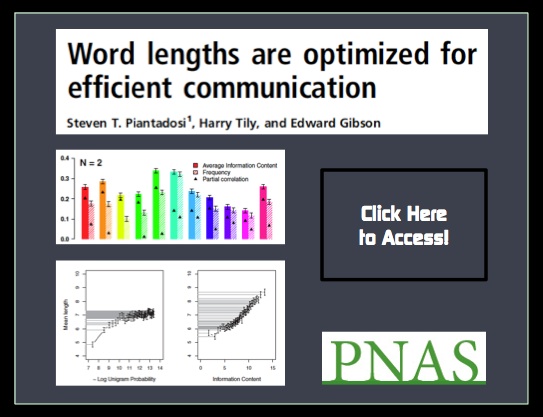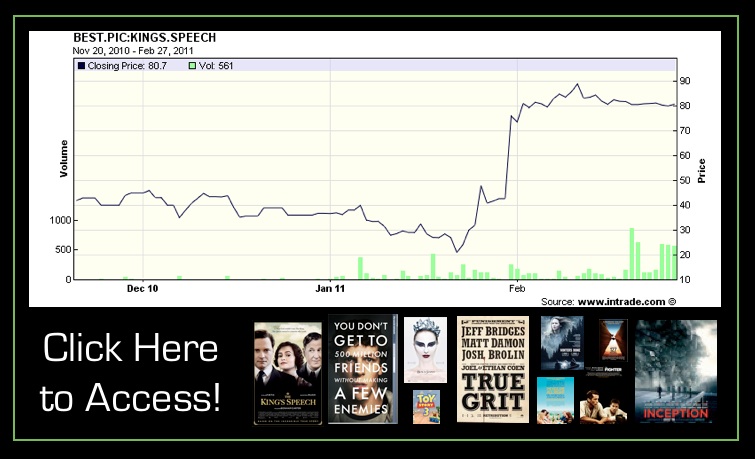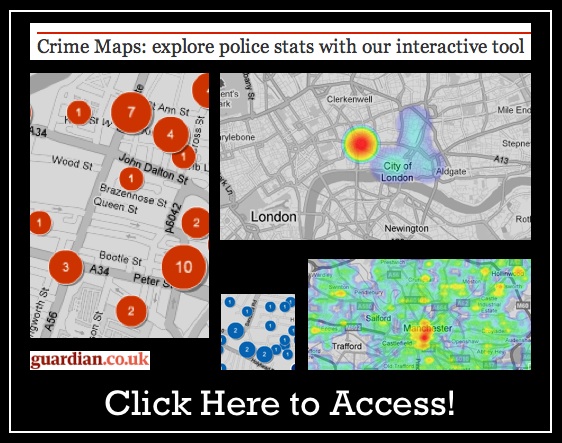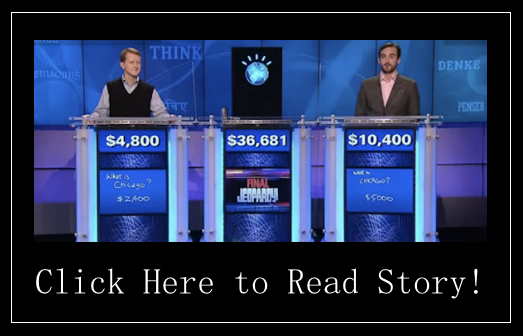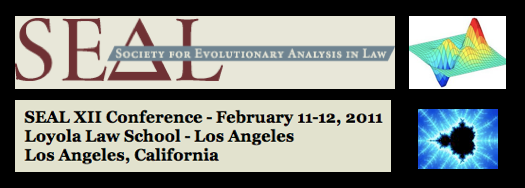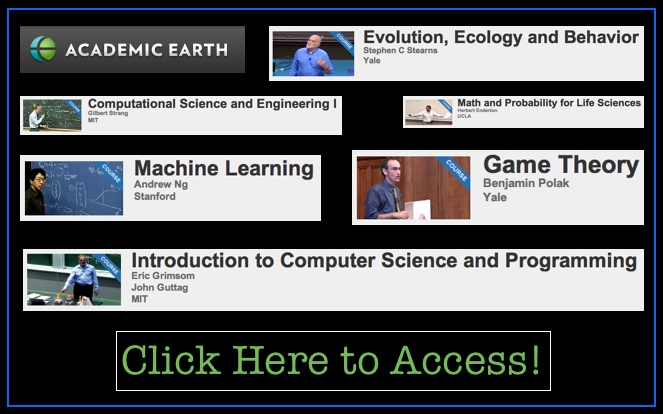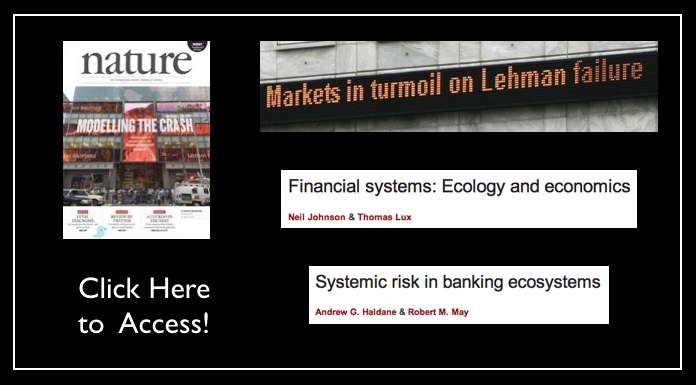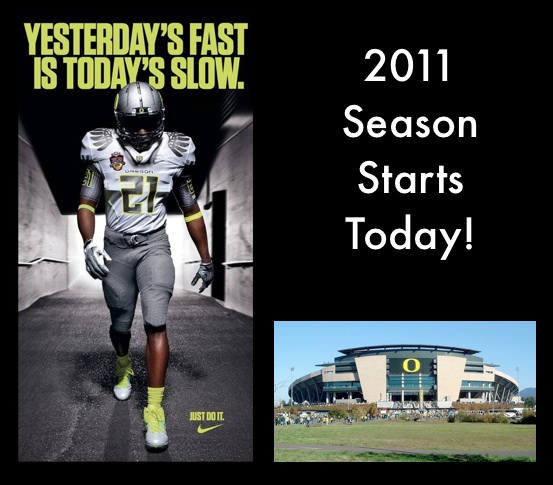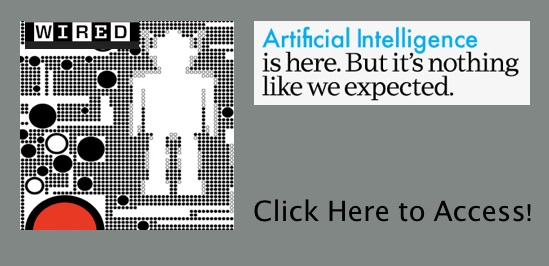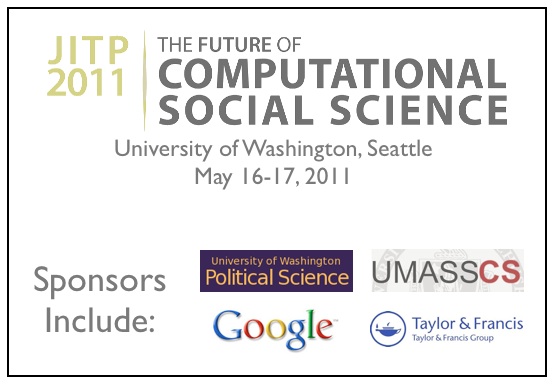 As a member of the conference program committee, I would like encourage you to consider submitting a paper to “The Future of Computational Social Science” at the University of Washington – Seattle, May 16-17, 2011. The conference aims to bring together leaders from industry and the academy to present cutting edge work. For those who might be interested in attending, please click on the image above or here to access the call for papers. Here is an excerpt:
As a member of the conference program committee, I would like encourage you to consider submitting a paper to “The Future of Computational Social Science” at the University of Washington – Seattle, May 16-17, 2011. The conference aims to bring together leaders from industry and the academy to present cutting edge work. For those who might be interested in attending, please click on the image above or here to access the call for papers. Here is an excerpt:
“Computational social science is an emergent field and source of new theoretical and methodological innovation for social science more broadly. Multidisciplinary teams of social and computer scientists are increasingly common in the lab and at workshops where cross-fertilization occurs in the areas of theory, data, methods, and tools. Peer-reviewed interdisciplinary work is becoming more common as the computational tools and techniques of computer science are being used by social scientists. Previously, large-scale computational processing was the purview of expensive, university-centric computing labs. Now, with the democratization of technology, universities and for-profit firms increasingly provide large amounts of inexpensive computing power to researchers and citizens alike.”
Authors are invited to prepare and submit to JITP a research paper, policy viewpoint, workbench note, or teaching innovation manuscript by January 30, 2011. There is also an option to submit an abstract for potential inclusion in the poster session. The poster abstract is also due January 30, 2011.

